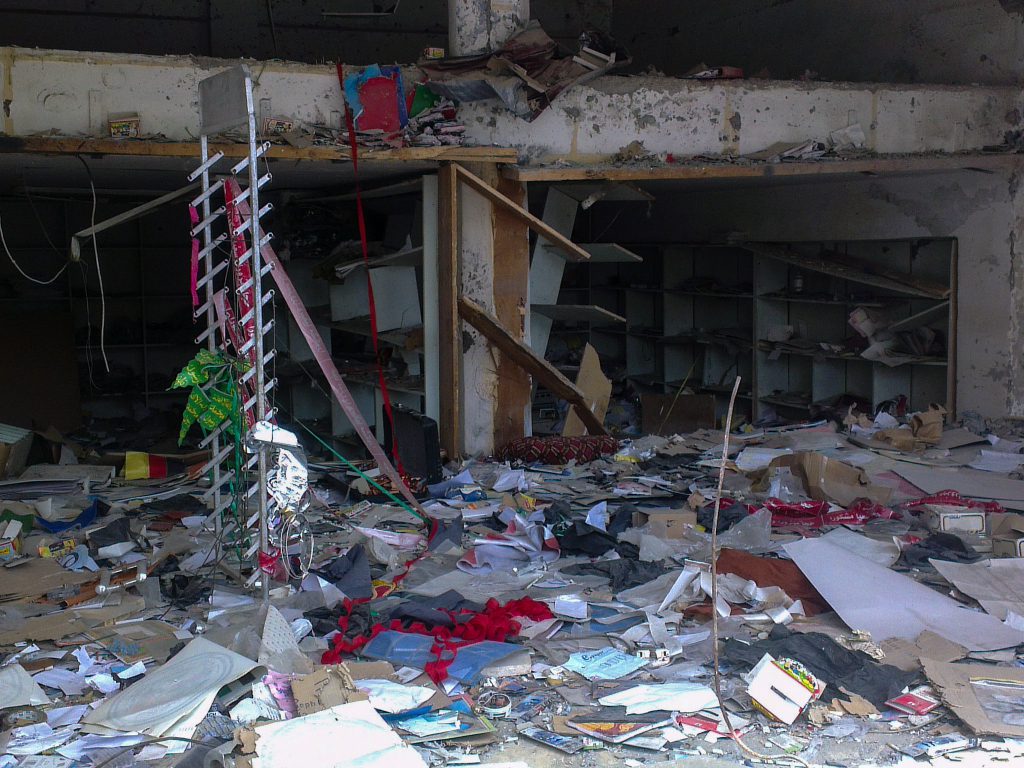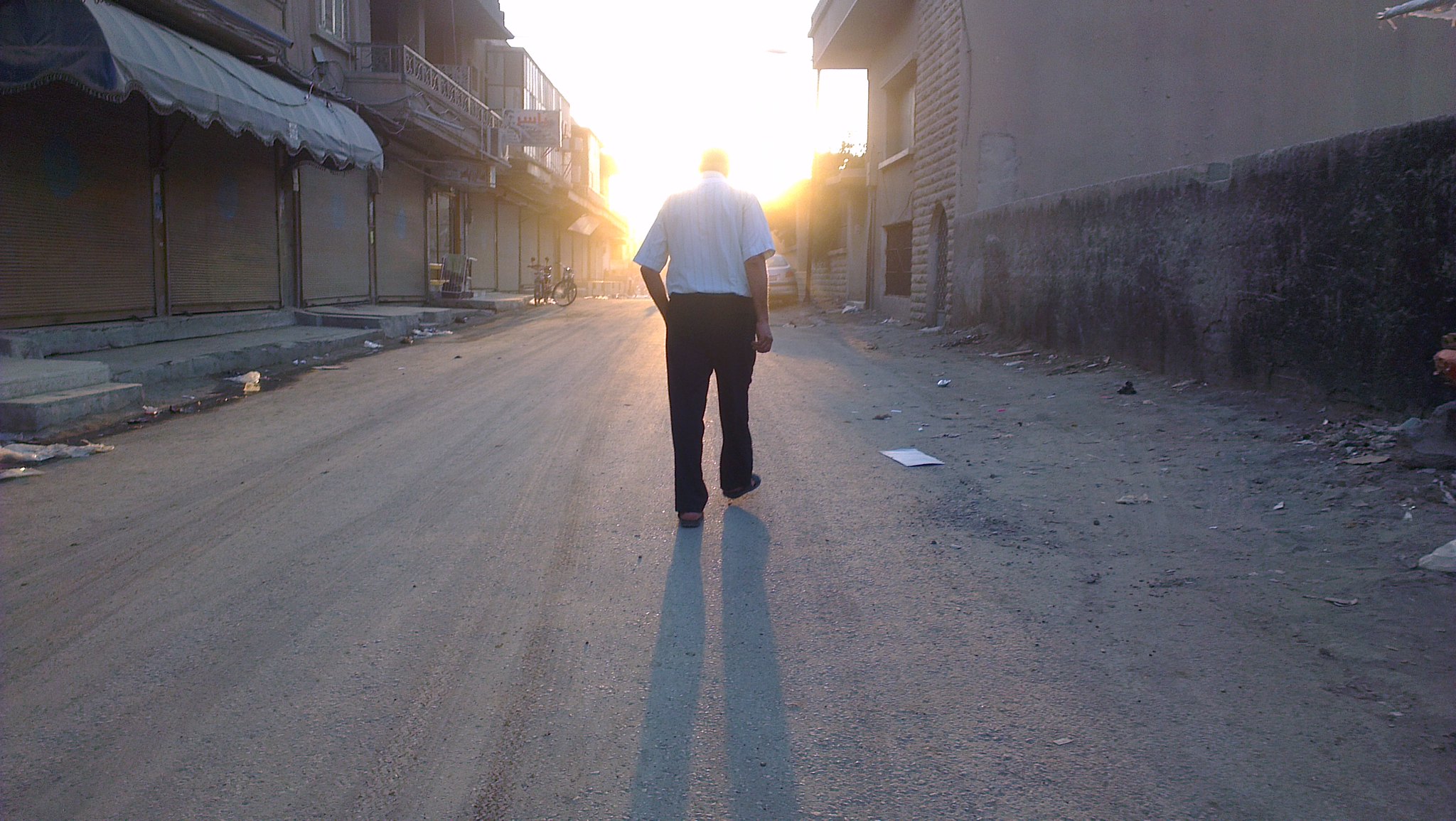This article is part of a series written in collaboration with KAFA, a feminist NGO that seeks to end gender-based violence and exploitation in Lebanon. The original article was published in Arabic on the KAFA website.
I closed my eyes, lost in the darkness of my own thoughts as I searched for my childhood memories. The pictures raced through my mind. My eyes opened on their own, but I forced them shut again. When the voice leading me into these memories asked me to recall something painful that’s been cemented in my mind since childhood, I remembered the moment my father hit me.
I could almost feel his large hand as it plastered to my cheek. His firm, loud voice resonated in my ears once again. Even the scent of jasmine came back to me, and I pictured my little brother running back into our old house.
My pseudonym is Noha. I am 29 years old, married, and a mother of four children. I was born in Raqqah, but lived in Sham. My childhood was like the rest of the kids around me. We would go to school, and after we were done with our studies, we would go outside and play. We would all wait for the right occasions to put on new clothes and eat Shami sweets.
We also lived through some moments of fear. When we’d do something wrong, we’d wait on the harsh tones, beatings, and threats of our parents. The pleading and crying did no good, I couldn’t escape the beating no matter what I did. The hardest part was getting slapped in the face right after talking back at them or refusing their requests.
Through our parents and over the years, we learned that this was the only good way to raise a child.
At 13, I married a simple man living with his parents in a humble Raqqah house. I loved him and accepted all the circumstances surrounding our marriage.
He would work and give the money he made to his father, the patriarch of the family and the one responsible for the financials of the household. As time passed, our problems piled up and I found myself under a lot of pressure that no one would support me with. I felt alone.
I left the house and went back to my parents. My father welcomed me, promising to support me under the condition that I stay in the house with my mother. He also said that it wasn’t his responsibility to take care of my children and that they would have to stay with their father.
I remember the raindrops on the window as I watched my husband leave my father’s house with my children in the winter of 2011. My children were crying, holding on to my hands as they were taken from me.
A short while after this painful goodbye, I learned that my husband left our children at his parents’ house and travelled to Lebanon to work. At the time, I suffered from insomnia, anxiety, and extreme sadness until my father realized how bad my situation was. He then permitted me to work, which would take away from the burden I was carrying.
I had been away from my children for a year and a half, but working made me feel independent and free for the first time in my life. I would leave and come back home at my own comfort. The fear that had accompanied me outside of my house from when I was a child faded away, and I felt the confidence I had long lacked.
In June 2012, after the war in Syria had begun, my children and husband’s family took refuge in Lebanon. I followed them, but refused to live in the same house as my parents-in-law. I lived with my husband and kids in Kasarnaba, a village in Baalbek. My husband and I worked in a pickle factory, and we had enough income to sustain a small family. After a while, my husband decided to move to Joub Jannine to be closer to his parents, and I agreed under the condition that we rent our own house rather than live with them.

To be able to afford it, I started cleaning houses and working in seasonal farming. My parents opposed this work but I stood up to them.
On a rainy morning in 2014, I joined a women’s discussion group at my neighbor’s house for the first time. I had repeatedly refused to take part in events organized by KAFA inside our living complex, mocking them and their purpose before my curiosity got the better of me.
In the session, we were asked to dig into our memories and remember scenes from our childhood. That’s when the image of my father hitting me came to me.
I became aware of the fact that I hit my children a lot, because I believed my father’s way of upbringing is right.
“When you talk to children about what’s right and wrong without hitting them, they listen and are responsive,” said the session’s mediator, sharing the dangers of hitting kids, how that reflects on their mental health, and the necessity of finding alternatives to unloading our anger and frustration.
I started regularly attending these awareness sessions, which revolved around violence, its forms, and how to end conflict within the house in a way that protects ourselves and children from violence. I was also kept in check by a psychologist.
After a year and a half of attending these sessions, KAFA told us they would select six people to give these sessions inside our living complex. I felt it was my opportunity to develop my skills and share the valuable knowledge I had learned, been convinced by, and applied on myself and children. I had never completed my studies and had lost the ability to read and write, but I took this as an opportunity to learn more and gain valuable experience.
I took lessons to strengthen my language and learned how to sow. I succeeded in my new career, heading discussions and holding activities for women in the living complex. I never expected this much responsiveness and acceptance from them. I’m happy with the way things turned out for my kids and I, and I hope to share my experience with as many women as I can.


